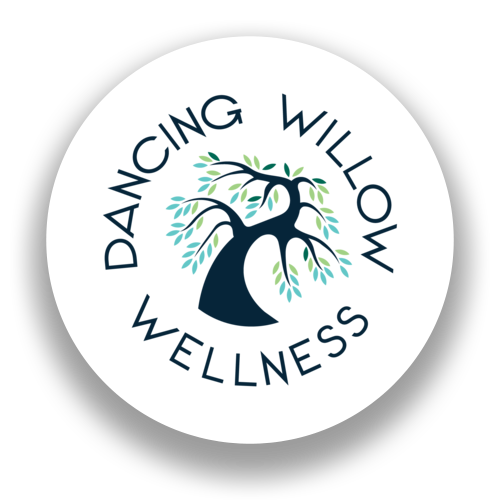
Resource Library
How to Change Your Habits and Make it Stick - Part 3
We can’t stop habits from forming and nor do we want to! Habits help us! Habits are great when they work for us and not against us. Whenever we want to change our routines, we need to change our habits. This is especially true every time there’s a change in season or a change in routine. Think back to the end of August and the beginning of September. There’s a lot of change in a couple short weeks. Not having habits and routines that support you can make changing things harder than it needs to be.
Changing habits can be as easy as making the new habit easy or making something we want to stop doing more difficult. As humans, we naturally gravitate towards easy over hard - let that work for you in this case!
How to Change Your Habits and Make it Stick - Part 2
We’ve been chatting about how habits are formed, how they affect your daily life and how to start making changes. If you didn’t catch the previous two articles, you can read them here: How Habits Affect Your Life + How to Make them Work for You and How to Change Your Habits and Make it Stick - Part 1.
Simply put, habits are an unconscious response to a specific stimulus. If you get cut off in traffic, what’s your automatic response? If you’re feeling stressed, what’s your go-to solution? If your pet or child comes to see you and wants a hug, what’s your response?
How to Change Your Habits and Make it Stick - Part 1
Our lives are run by habit. We wouldn’t be able to do the majority of the things we do in the day without habits. This doesn’t make habits wrong, right, good, bad, healthy, unhealthy… Habits simply are. Habits by nature are subconscious and exist solely to respond to different stimuli (pop over and read How Habits Affect Your Life if you want to understand why habits better).
Health - What is it really?
"Health is a state of complete physical, mental and social well-being and not merely the absence of disease or infirmity." - Health as defined by the World Health Organization
I've come to believe that if I want to thrive, I must invest in my health. If I want to merely survive, I can treat health as an expense and treat symptoms as they arise. For years I treated my health as an expense and opted for the cheapest solution. I struggled with iron deficiency anemia, chronic fatigue syndrome, debilitating periods and more. Unlike most practitioners, I understand chronic illness and the struggles it creates because I’ve lived with it.
Your Snooze Button and Why It’s Messing with You!
Did you know that hitting the snooze button actually makes it harder to get out of bed in the morning?
Studies have shown that we get most of our REM sleep (or dream sleep) in the latter part of our sleep cycles (these cycles happen multiple times throughout the night). We also get more REM sleep overall in the early morning hours. REM sleep is the most restorative part of the sleep cycle. When your alarm goes off in the morning, you’re most likely disrupting REM sleep; especially if you wake up from a dream. By choosing to hit your snooze button instead of getting up, you are starting another sleep cycle and may be reentering another REM cycle within that sleep cycle.
Happy Pi(e) Day!
In honour of International Pi/Mathematics day, I would like to do an experiment with you where we imagine two different scenarios.
First, imagine somebody has made you a pie. You appreciate the gesture and set the pie on your counter. You’re on a diet and not allowed to eat pie. Maybe you’re not on a specific diet, but you don’t think pie is good for you or you’re concerned about the amount of sugar and carbs in it. Throughout the day, you walk past the pie and are tempted to eat a piece, but restrain yourself and don’t. By the end of the day, you say what the heck and decide to quickly shovel a piece in your mouth. Quick and dirty, you get it over with so you can stop thinking about it. Do you feel guilty that you ate a piece? Do you beat yourself up for not having more willpower? Did you even really taste the pie? Did you end up eating another piece or 2 so you could actually taste the pie? Maybe you ate it and moved on with your day, not giving it much more thought.
Accepting Your Body as an Act of Rebellion
“I’m so bad”, she states as she reaches for a cookie. “No I can’t, I’m trying to be good” as she declines an offer of a homemade muffin. We’ve all heard these phrases, and have probably said them, or something similar, ourselves. When we pause to reflect on these phrases, we can discern how we’re assigning moral value to food choices. Letting what we eat determine whether we’re “good” or “bad”. Our worth is not based on which foods we choose to eat or choose not to eat.
How Counselling can Help with Winter Blues
As Canadians, our mental health can dive during the winter months.“About 15% of people in Canada experience the winter blues, while only about 2-3% of people in Canada experience SAD (Seasonal Affective Disorder)” (Canadian Journal of Psychiatry, 2000).
If that doesn’t sound like a lot, that’s about 5,737,500 Canadians experiencing the winter blues yearly! So, how can counselling or therapy help with that?
Bouncing Back After a Fall
If you fall, you could break a bone, like thousands of older men and women do each year. For older people, a break can be the start of a more serious problem like a trip to the hospital, a permanent disability, or even a move to a long-term care home.
More than one in three people aged 65 years or older fall each year. The risk of falling and fall-related problems rises with age.
Practitioner Spotlight: Meet Andrea
Are you looking for a practitioner who is kind, compassionate, empathetic and understands the health struggles you’re experiencing?
Andrea’s near encyclopaedic wealth of knowledge combines perfectly with her calm and compassionate nature to deliver an outstanding level of care.
At Dancing Willow Wellness, we pride ourselves on patient-centred care, and Andrea exemplifies this principle. She is always ready to meet patients where they’re at, and use her skills, expertise, and warmth to bring them closer to where they want to be.
Patients feel supported and heard throughout their journey and appreciate her kindness as well as the great results they achieve.
How to Tell if Your Period is Normal
Like so many other teenage girls, I had no idea what to expect with my first period or what it'd be like throughout my life. I also did what so many other teenage girls before me did - I asked the women in my life. In this case, my mother and older sister.
While this may seem an entirely normal and reasonable thing to do, in reality, it isn't! If they don't know what a "normal period" is, how can they actually answer this question?! They can tell me what a "normal for them period" is but not a "normal period".











